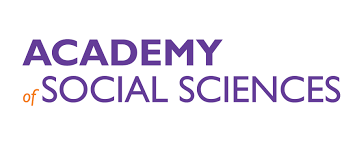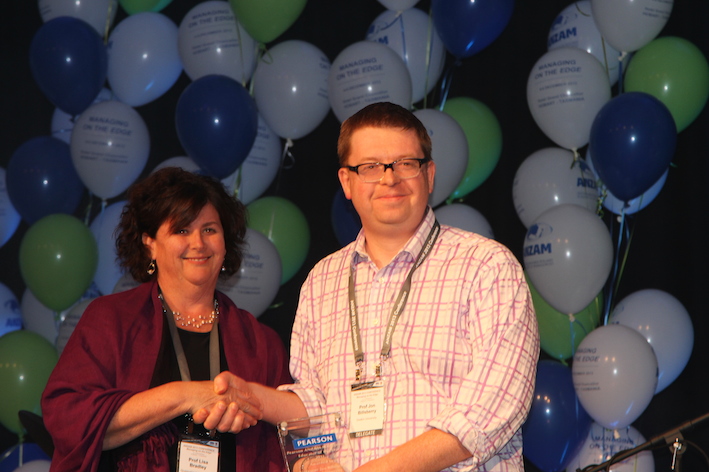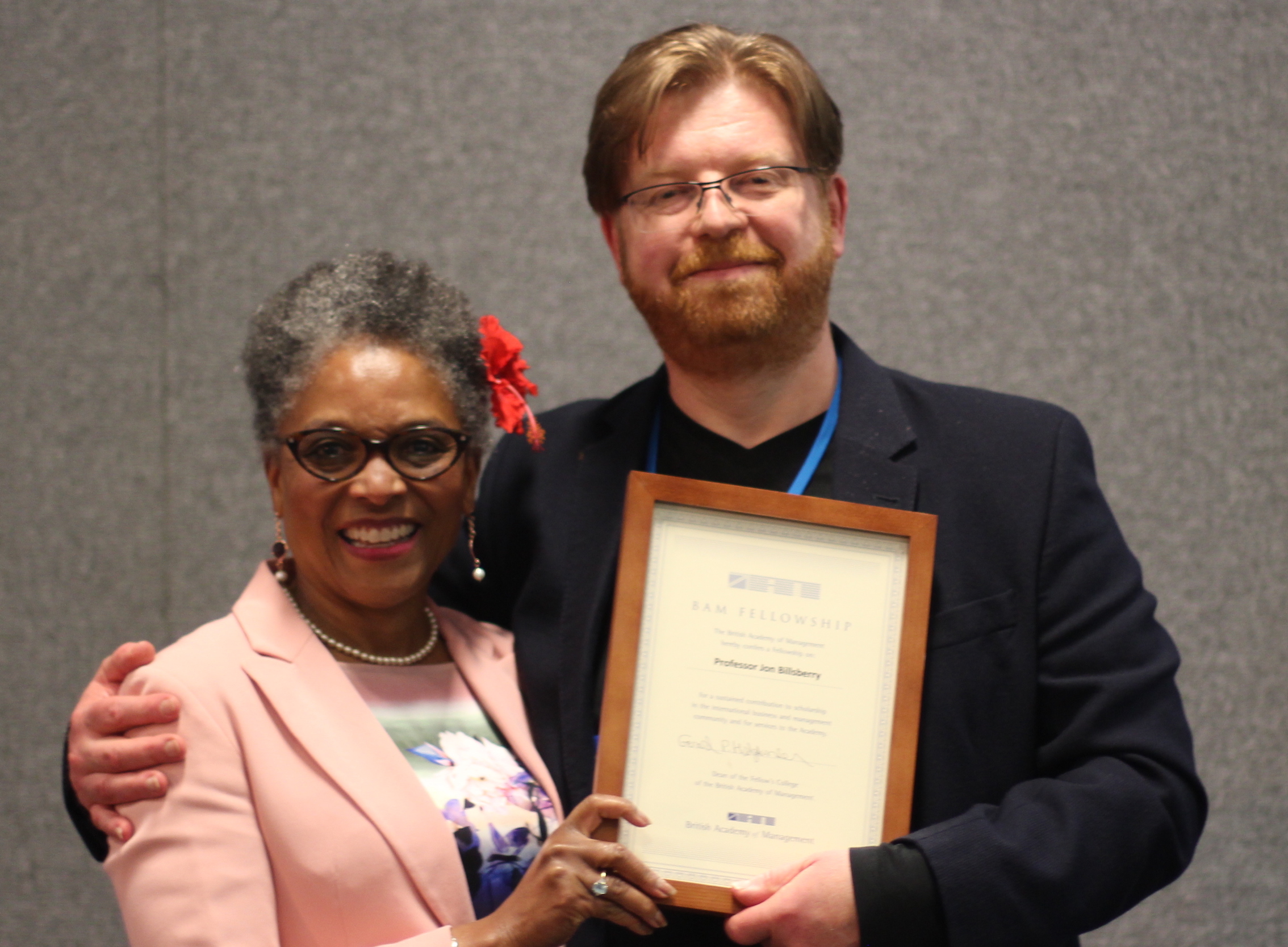Australian Business Deans Council (ABDC)
In 2022, I chaired the panel reviewing the ABDC journal ranking lists for Management, Commercial Services, Transport, and Logistics. It was only a 'minor' review with no re-ranking of journals until 2024/2025, but it was the first review after the Field of Research (FOR) had changed. Whereas the previous 1503 code had been a bit of a catch-all for management journals, various disciplines have now been teased out. In particular, Human Resource Management and Industrial Relations has its own code, 3505, as does data analytics, 3503. Unfortunately, most journals have multiple FOR codes, so the panel's job involved researching each journal in the list and allocating it to just one code.
Journal of Organizational Behavior: Systematic Review of Temporal Person-Environment Fit
Our new paper reviewing research work on temporal aspects of person-environment fit has been published in the Journal of Organizational Behavior. And as we have published it with a gold open access copyright licence, I can make the PDF available here. PDF
Vleugels, W., Verbruggen, M., De Cooman, R., & Billsberry, J. (in press). A systematic review of temporal person–environment fit research: Trends, developments, obstacles, and opportunities for future research. Journal of Organizational Behavior. https://doi.org/10.1002/job.2607
Abstract: In this systematic review, we present a comprehensive overview of the temporal person environment (PE) fit literature. To this end, we organize and integrate extant temporal fit research and discuss research trends and developments in the temporal domain. Our analysis reveals that temporal conceptualizations of fit vary in terms of change process (transitional, developmental, transformational), level of aggregation (situational vs. baseline level), and temporal frame (clock time vs. psychological time), all of which divide the temporal fit literature in significant ways. Furthermore, our analysis shows that progress in the temporal fit domain has been confined by five major obstacles: An emphasis on selection and socialization processes, a narrow focus on the between-person level of analysis, preoccupation with linear change, a strong interest in normal causation questions, and a lack of attention to misfit. We conclude with a discussion of the research challenges that lie ahead and provide suggestions to tackle these challenges and expand temporal PE fit research in new directions.
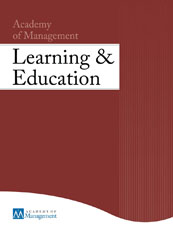 Academy of Management Learning & Education Essay Published
Academy of Management Learning & Education Essay Published
Just before Christmas 2019, our paper on phenomenographic approaches to management education was published in Academy of Management Learning & Education (AMLE); the world's leading journal for management education.
Title: Toward a non-essentialist approach to management education: Philosophical underpinnings from phenomenography
Authors: Jon Billsberry, Veronique Ambrosini, Mariano Garrido-Lopez, and David Stiles
Abstract: The classic approach to management education is managercentric and assumes an essential nature to management. Drawing on ideas from interpretivist epistemologies, the social construction of leadership, phenomenography, and variation theory, we discuss the implications for management education of taking a non-essentialist approach and regarding the nature of management as unknown and unknowable. We focus on phenomenography for two reasons: First, when applied to the task of defining management, it is built on interpretivist roots where the knowledge and understanding of the observer is paramount. Second, it is also a theory of learning with direct application to management research and teaching. Building on these insights, we highlight the importance of students becoming active investigators of management and offer practical teaching implications on how students might be encouraged to engage in experiences that identify variations in the ways that management is conceptualized and performed. We also consider how such an approach brings a fresh perspective on what management education is about, the role of the educator, and how it informs the ongoing debates relating to the institutional pressures that business schools face.
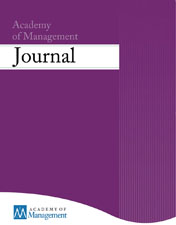 Academy of Management Journal Paper Published
Academy of Management Journal Paper Published
I am delighted to announce that our large-scale in-depth study of misfit has been published in Academy of Management Journal (AMJ); the world's leading empirical journal in business and management. You can access the paper via this link: AMJ misfit paper link
Title: Resolution, relief, and resignation: A qualitative study of responses to misfit at work
Authors: Elizabeth H. Follmer, Danielle L. Talbot, Amy Kristof-Brown, Stacy L. Astrove, and Jon Billsberry
Abstract: Research has portrayed person-environment (PE) fit as a pleasant condition resulting from people being attracted to and selected into compatible work environments; yet, our study reveals that creating and maintaining a sense of fit frequently involves an effortful, dynamic set of strategies. We used a two-phase, qualitative design to allow employees to report how they become aware of and experience misfit, and what they do in response. To address these questions, we conducted interviews with 81 individuals sampled from diverse industries and occupations. Through their descriptions we identified three broad responses to the experience of misfit: resolution, relief, and resignation. Within these approaches we identify distinct strategies for responding to misfit. We present a model of how participants used these strategies, often in combination, and develop propositions regarding their effectiveness at reducing strain associated with misfit. These results expand PE fit theory by providing new insight into how individuals experience and react to misfit - portraying them as active, motivated creators of their own fit experience at work.
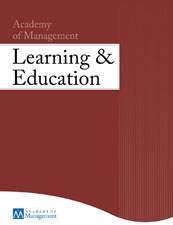 Guest Editor: Special Issue of Academy of Management Learning and Education
Guest Editor: Special Issue of Academy of Management Learning and Education
Our special issue of Academy of Management Learning & Education (AMLE) on academic careers, especially those in management and business, was published as the second issue of 2019.
On the guest editorial team with me was Tine Köhler (University of Melbourne), Micheal Stratton (University of North Carolina Asheville), Michael Cohen (Deakin University), and Susan Taylor (University of Maryland at College Park).
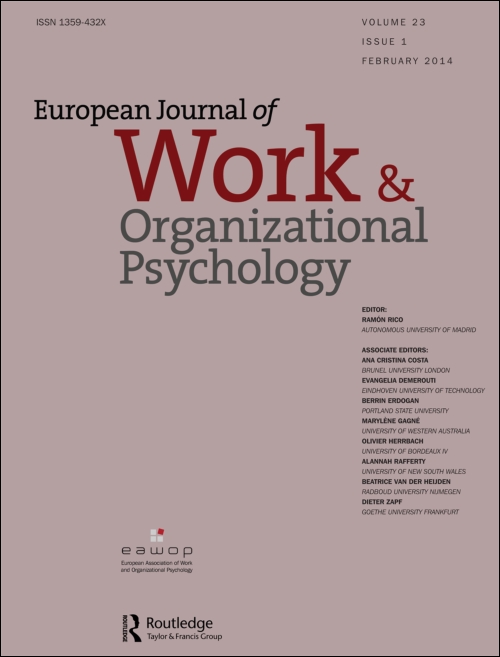 European Journal of Work and Organizational Psychology
European Journal of Work and Organizational Psychology
I'm delighted to announce that the special issue of the European Journal on Work and Organizational Psychology on the experience of fit and misfit was published in 2019.
http://explore.tandfonline.com/cfp/beh/pewo-si-experiencing-fit-and-misfit/
Guest editing the special issue with me were colleagues from Belgium and The Netherlands, namely: Rein De Cooman (KU Leuven, Belgium), Stefan Mol, Corine Boon, and Deanne Den Hartog (all University of Amsterdam, The Netherlands).
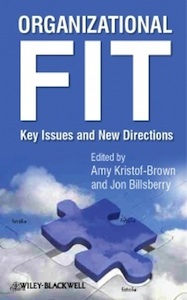 New Books Reviewed
New Books Reviewed
I'm delighted to say that my two most recent books have been reviewed in leading journals. Organizational Fit: Key Issues and New Directions, which Amy Kristof-Brown and I co-edited, was reviewed in Personnel Psychology (click here) and Moving Images: Effective Teaching with Film and Television in Management was reviewed in the Academy of Management Learning & Education (click here). Both reviews were conducted by experts in the field and were absolutely glowing.
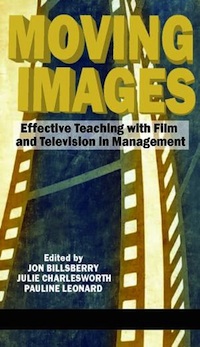 Moving Images: "As one who has written and presented frequently on the use of media in the classroom, I highly recommend Moving Images for instructors at every level of teaching-undergraduate, graduate, and executive. I was surprised by how much I gained from reading the book. Many of the tips and suggestions about using media were common to me, but example from specific movies frequently provided "aha moments" whiere I realized teaching illustrations I had missed when I viewed these titles. In addition, there are plenty of general lessons about pedagogy helpful for every academic to consider."
Moving Images: "As one who has written and presented frequently on the use of media in the classroom, I highly recommend Moving Images for instructors at every level of teaching-undergraduate, graduate, and executive. I was surprised by how much I gained from reading the book. Many of the tips and suggestions about using media were common to me, but example from specific movies frequently provided "aha moments" whiere I realized teaching illustrations I had missed when I viewed these titles. In addition, there are plenty of general lessons about pedagogy helpful for every academic to consider."
Robert L. Holbrook Jr., Associate Professor in Management, Ohio University
Organizational Fit: "Organizational Fit: Key Issues and New DIrections is an outstanding volume. The goal of the book is to go beyond the current research on the fit of individuals and organizatons to begin to develop new approaches to the study of the area. The authors certainly have achieved this goal and more. Kristof-Brown and Billsberry bring together some of the key researchers in the arena to provide an exciting and thought-provoking work. ... the editors have really done an excellent job with this volume ... This work makes an important contribution to the research on organizational fit and should have an impact on shaping the field for years to come."
John A. Lust, Professor of Management, Illinois State University
ANZAM Management Educator of the Year
 I was delighted to win the 2013 Pearson-sponsored Australian and New Zealand Academy of Management (ANZAM) Management Educator of the Year award. The plaque and prize were presented to me at the annual conference in Hobart, Tasmania in December.
I was delighted to win the 2013 Pearson-sponsored Australian and New Zealand Academy of Management (ANZAM) Management Educator of the Year award. The plaque and prize were presented to me at the annual conference in Hobart, Tasmania in December.
To win the award, I had to make a submission that was assessed in competition with others received. My submission had two strands to it. The first centred on the innovative teaching I've been developing on the Master of Leadership at Deakin University. In particular, I have designed units that include activities in which students produce their own videos, TV magazine programs, and original short films. In several of these activities, the students work with professional actors and filmmakers and use professional equipment to make their digital artefacts. The feedback on the initial offerings of these units was remarkable and this must have helped my submission.
The second strand to my submission focused on my contributions in stimulating innovative scholarly work in management education. I pointed to my involvement in the development of the Research in Management Learning and Education (RMLE) Unconferences, the first of which was well attended at Bond University on the Gold Coast in February 2013. I was also able to describe various clusters of people that I was able to bring together in the pursuit of new advances in the discipline. A good example being my introduction of the two people who will guest edit a special issue of the Journal of Management Education on threshold concepts.
One of the nice aspects of the award is an invitation to run a workshop on my teaching innovations at the 2014 ANZAM conference in December in Sydney.
 Moving Images
Moving Images
Published in 2012, Moving Images: Effective Teaching with Film and Television in Management, which Pauline Leonard, Julie Charlesworth and I co-edited, includes sixteen newly written chapters by experts in the field.
Amazon UK: Click Link
This book captures the most up-to-date and cutting edge ideas on the use of film and television in management and leadership education. The chapters are divided into three sections. The first captures best practice in the use of film and television in a broad cross-section of contexts. The second looks at some process and 'how to' issues such as technology, copyright, and addressing audiences. The third section looks to the future and explores how film and television might be used in different parts of the curriculum.
 Organizational Fit: Key Issues and New Directions
Organizational Fit: Key Issues and New Directions
Just published, my new book entitled Organizational Fit: Key Issues and New Directions, which Amy Kristof-Brown and I co-edited, includes ten newly written chapters by experts in the field.
Amazon UK: Click Here
"This book represents a fine compendium of thinking about what fit is, the motivations of people to seek it, the antecedents of achieving it, and the consequences of having – and not having it – at work. The consequences, indeed, extend to performance of the individual and the organizations in which people work. The chapters offer a broad range of insights into the fit process and contain many useful suggestions for – indeed pleas for – future research efforts on this important psychological phenomenon."
Benjamin Schneider, Senior Research Fellow, CEB Valtera, Professor Emeritus, University of Maryland

